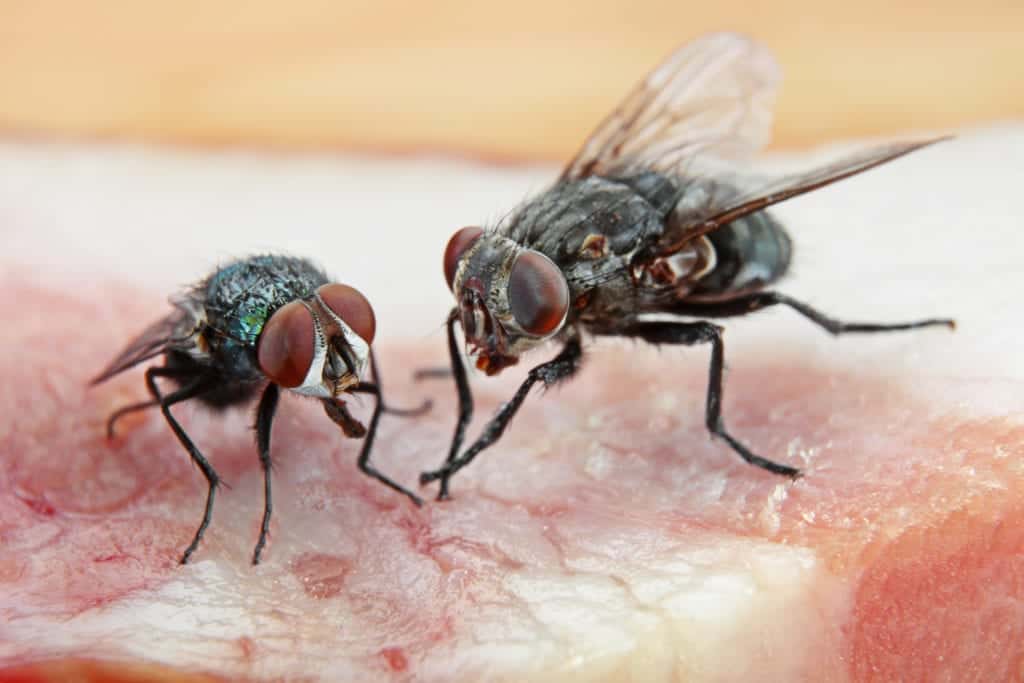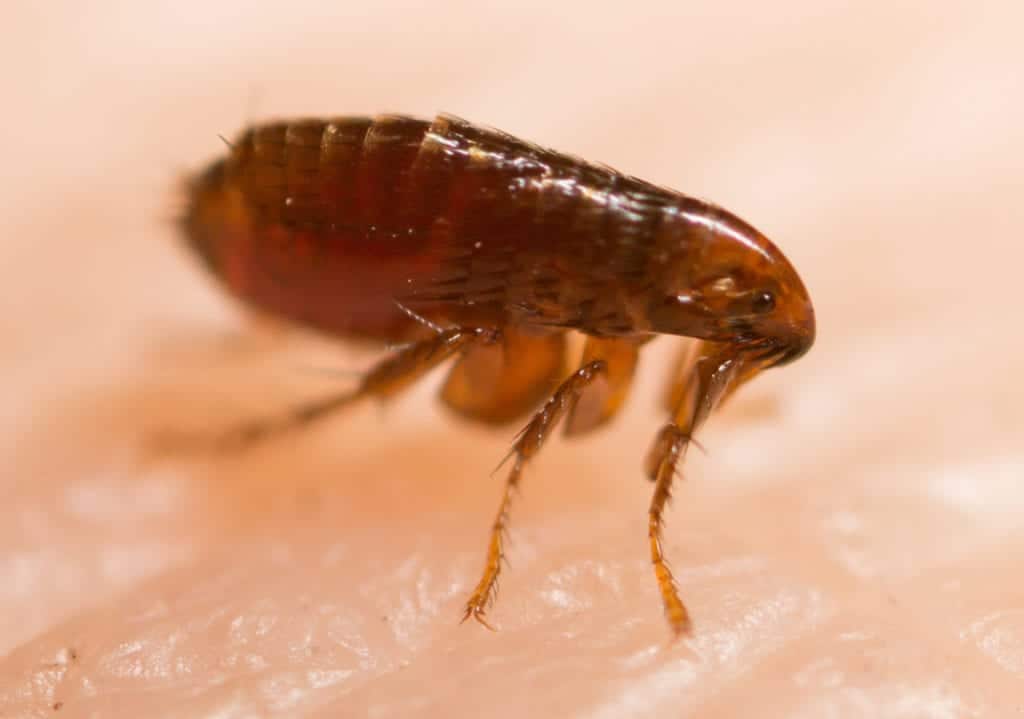Health Concerns of Pests – Part 4
Health Concerns of Pests – Part 4
This Health Concerns Post Series breaks down some of the most common pests and the various medical issues they can cause. In this blog, we breakdown: House Flies and Fleas.
House Flies
These little guys may not sting or bite, but this doesn’t mean that they can’t harm you. They are actually mechanical vector of disease, meaning that they can transmit pathogens simply by carrying them on the exteriors of their bodies and do not have to bite to transfer bacteria. These creatures mate, feed, and lay their larvae in both fecal excrements and decaying organic matter (such as a corpse). As such, these creatures are filthy! In 2017, a study was published called “The Microbiomes of Blowflies and Houseflies as Bacterial Transmission Reservoirs,” which proved that house flies could carry and distribute a variety of different human pathogens. The thousands of hairs covering the body, arms, and legs of these insects can cling to bits of rotten matter as well as hundreds of pathogens. Flies simply have to move from one infected surface, such as a pile of dung or rotting corpse, onto your food for a matter of seconds in order to contaminate it. According to the World Health Organization (WHO) the types of infections passed by flies typically fall into three categories: enteric (relating to the intestines), ocular (relating to the eyes), or dermic (relating to the skin). The enteric infections flies can spread include dysentery, typhoid, cholera, and some helminth infections; the ocular infections include trachoma and epidemic conjunctivitis; and the dermic infections include yaws, mycoses, cutaneous diphtheria, and even leprosy. Unfortunately, house fly infestations are not something exterminators can typically treat. This is due to the fact that fly infestations are caused by a stimulant, and often the stimulant has to do with sanitation. While that may sound almost insulting to the clean homeowner, there are often cases of concealed sanitation issues that you may not even be aware of. Such cases could include: a bit of rotten food hidden in the depths of a cupboard, an expired animal (such as a mouse) under a deck or in a crawl space, or simply particularly pungent garbage. Once whatever is attracting the flies is removed and cleaned up, the flies will go away, so it is important to seek out the source that is baiting them in. 
Fleas
There are more than 2,500 different species of fleas in existence, roughly 300 of which are found in the US. Fleas are external parasites which means they travel on the backs, legs, etc. of their hosts from place to place and being to being. Historically fleas were spread in troves by another pest: rats. When traveling on these rats, they were also spreading horrible diseases – most notably the bacterium Yersinia pestis… the “Black Plague.” While the plague is mainly perceived as a historical illness caused by rats, this is not completely true. The disease was spread by the fleas on the rats and, unfortunately, it is still possible to contract the Black Plague today, although thankfully, our modern medicine can now treat the bacteria if caught early enough. Other diseases that fleas can transmit include tularemia and typhus. Fleas also love to feast on the blood of our beloved furry friends. In fact, the most prominent species of flea in the U.S. is the Ctenocephalides felis… also known as the “cat flea,” though, this is a misnomer as these fleas most commonly infect dogs. When fleas bite, their saliva is injected into the dermis of their victims which can cause several problems for dogs and cats. The most common reaction is an immune response called flea allergy dermatitis (FAD), which results in intense itchiness and skin irritation. In other severe cases, when various fleas are attacking one host, your dog or cat could be at risk of developing a very serious medical condition: anemia. If your pet is developing anemia, you may notice increased lethargy, labored and/or rapid breathing, and weakness – all signs that your furry friend requires immediate medical intervention. If left untreated, this flea-induced condition can unfortunately even lead to death. Some fleas are also internally infested with the eggs of tapeworms which can cause further problems for your furry friends. If your dog or cat accidentally ingests an infected flea, they may soon be plagued by interior parasites as well as their annoying external biters. Luckily, tapeworms are very easily treated by a veterinarian and you can also consult your vet about ongoing flea and tick protection for your furry family members as a preventative measure for all of these problems. 
Citations
Prevention and Control: Fleas (N/A) Illinois Department of Public Health. The Division of Environmental Health. Available at: http://www.idph.state.il.us/envhealth/pcfleas.htm (Accessed: May 2020). The Hidden Dangers of Flea Bites: What to Look For (no date) The Associated Press. Seresto. Available at: https://apnews.com/sponsored/?prx_t=z40EAq48yAniAPA&prx_ro=s&ntv_fpc=671dc30c-79c6-4e77-b41f-040c722e9642&ntv_fr (Accessed: September 2020). House Fly: Musca domestica Linnaeus (2017) Entomology and Nematology of University of Florida. The Florida Department of Agriculture and Consumer Services. Available at: http://entnemdept.ufl.edu/creatures/urban/flies/house_fly.HTM (Accessed: July 2020). Junqueira, A.C.M., Ratan, A., Acerbi, E. et al. The microbiomes of blowflies and houseflies as bacterial transmission reservoirs. Sci Rep 7, 16324 (2017). https://doi.org/10.1038/s41598-017-16353-x Keiding J. The Housefly – Houseflies: Carriers of Diarrheal Diseases and Skin and Eye Infections. Training and Information Guide (advanced level). Geneva, World Health Organization, 1986 (unpublished document WHO/VBC/86.937; available on request from Division of Control of Tropical Diseases, World Health Organization, 1211 Geneva 27, Switzerland). Tapeworms in Cats 101 (2020) Chewy Pet Central. Available at: https://petcentral.chewy.com/tapeworms-in-cats/ (Accessed: September 2020).
Request a Free Quote Today
(We do not share your data with anybody, and only use it for its intended purpose)
